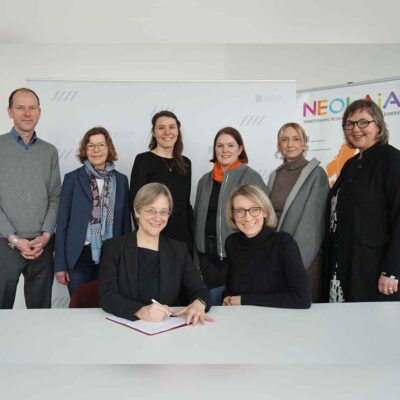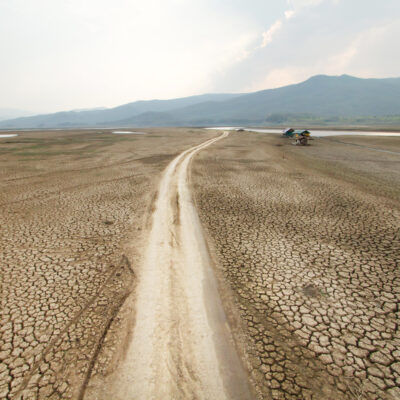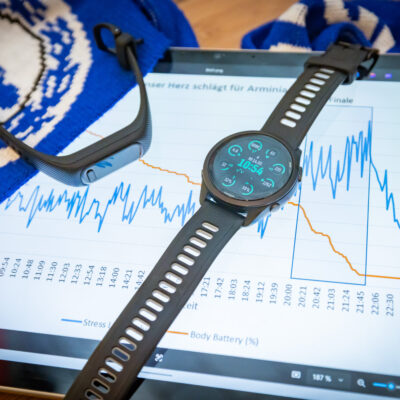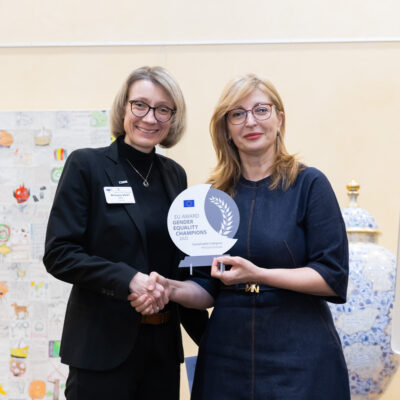It’s been nearly two years since Russia invaded Ukraine. As the war in Ukraine continues to this day, students and researchers there continue to face grievous difficulty in their research, teaching, and studies. Bielefeld University was able to support its Ukrainian partners with a number of offerings this year, while also creating new formats for exchange, research, and support. A review.
Staying close to Ukrainian partner universities
Bielefeld University is maintaining partnerships with National University of Kyiv-Mohyla Academy, Dnipro National University, and Zaporizhzhia National University (ZNU), with its partnership with the university in Zaporizhzhia standing out particularly among them: Bielefeld University was able to preserve 14 specialist events on site in Ukraine this year by subsidising lecturers with funds provided by the DAAD [German Academic Exchange Service]. 41 researchers from Ukraine could be invited to various faculties of Bielefeld University for research and teaching stays.
Rector Mykola Frolov and Olena Tupakhina, vice-rector for international matters, of Zaporizhzhia National University visited Bielefeld University in November. They told Rector Professor Dr. Angelika Epple about the current situation in their city of Zaporizhzhia, where the number of residents has been almost cut in half since the war started. At the same time, ZNU is housing domestic refugees from occupied areas of Ukraine who have come to the city on campus and in its dormitories. The university continues to be only able to teach its students online.
“For us as a partner university, it remains important that we support our colleagues and their students on site in Zaporizhzhia – they continue to suffer under the war, with all of its depressing effects on the university and campus. We would like to continue and expand our joint research formats in future as well where academic fields are concerned – in Bielefeld and surely also in Zaporizhzhia, as soon as that becomes possible again,” says Rector Professor Dr. Angelika Epple.
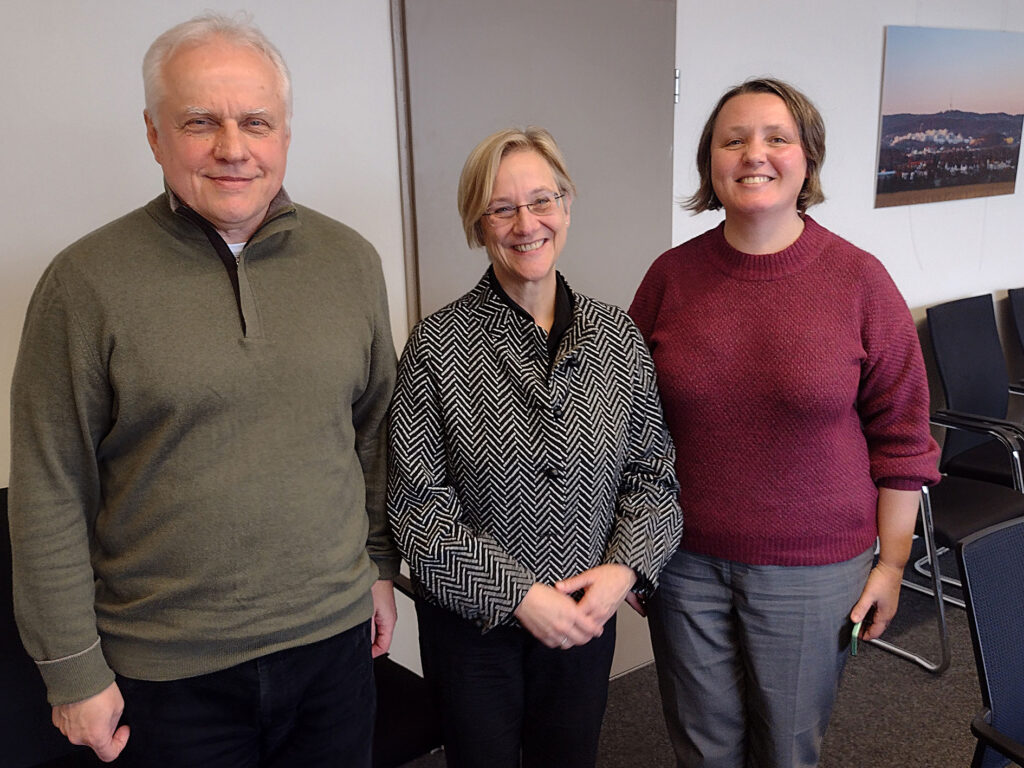
© Bielefeld University
Bielefeld University was able to enter into a new partnership with a Ukrainian university in spite of the war in 2023 as well: an ERASMUS+ cooperation in history with the Catholic University of Lviv. The war currently limits exchange to bringing Ukrainian students to Bielefeld while the partners are also stiving to implement a qualified offering for Ukrainian as a foreign language for students in all faculties.
Summer Schools for Ukrainian students
Bielefeld University offered a variety of short stays for Ukrainian students this year. One example was the four-week Summer School implemented by Bielefeld’s Department of History, in the scope of which 15 students, five doctoral students, and five lecturers from Zaporizhzhia National University visited Bielefeld for one month in June. They were to have an opportunity to experience “academic normality” during that period. Participating in a study programme in the English language, they learned about theoretical approaches and current focuses of research of history in Bielefeld, were able to participate in an intensive German language course, and got to know the nearer and farther surroundings of Bielefeld in a number of excursions.
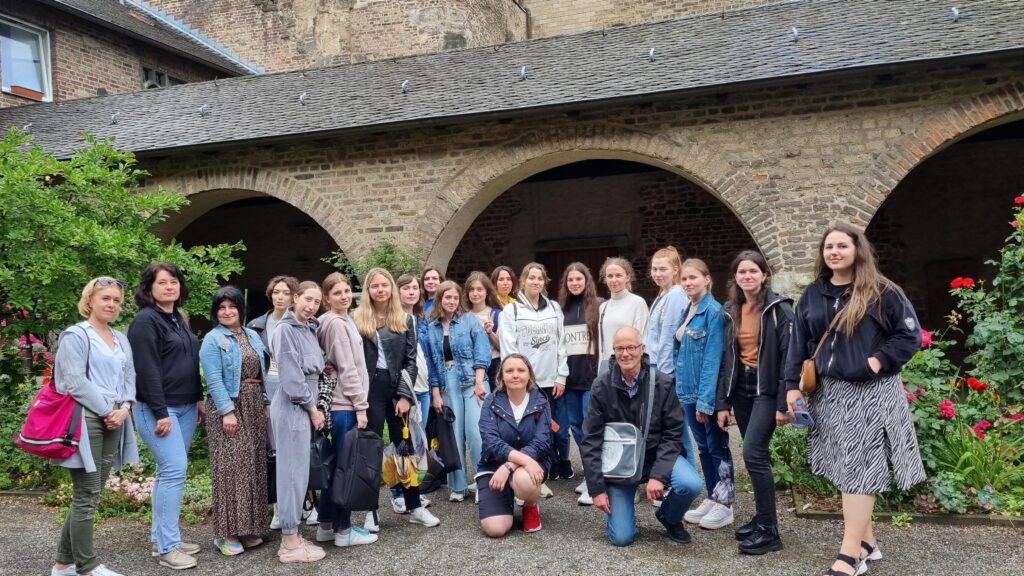
© private
The Summer School was subsidised with funds from Bielefeld University and the European Union
Research on Ukrainian subjects
The war of aggression is posing new challenges to research and teaching referring to Ukraine. Researchers from Bielefeld initiated academic symposia with their colleagues from various disciplines to this end in 2023. The symposium “War and Peace in Ukraine: Reflecting, Studying and Engaging across Disciplines” in October was just one of many examples. The Bielefeld historian team around Dr. Yaroslav Zhuravlov, Professor Dr. Kornelia Kończal, and Professor Dr. Frank Grüner put the relationship between peace and conflict research and Eastern European studies at the focus, two research disciplines that have been paid special attention since the war of aggression began. Representatives of these areas are important voices in the public debate.
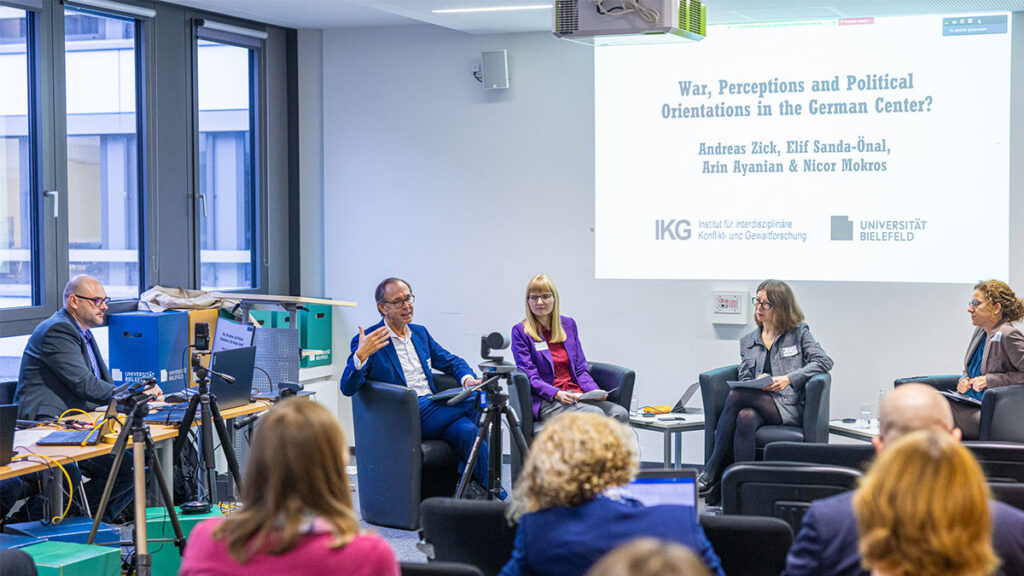
© Mike-Dennis Müller
“We are happy that we were able to convince so many excellent colleagues of our conference – including those from Ukraine. Our event has shown the great intersection between these two interdisciplinary fields and just how much we are able to learn from each other,” says Professor Kończal.
